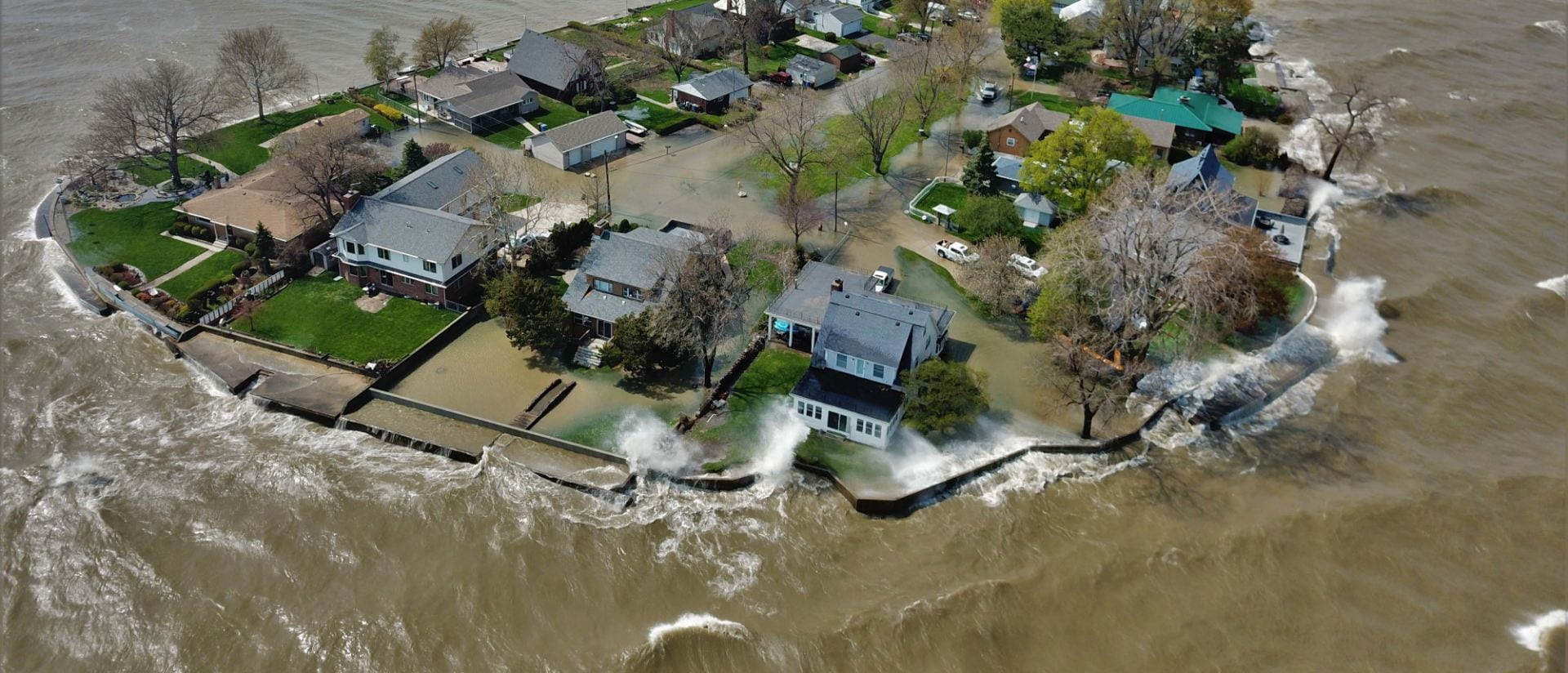Presentations
At the National Science Policy Symposium (NSPS) 2020, SPG members presented this year’s work. Members present their memo which was published in the Journal of Science Policy and Governance. Also at the NSPS, the SPG team presents their Chicago Water Panel event of March 2020.
Publications

Establishing Climate Change Resilience in the Great Lakes in Response to Flooding
Gwendolyn E Gallagher, Ryan K Duncombe, Timothy M Steeves
Executive Summary: Over the past decade, both the average rainfall and the frequency of high precipitation storm events in the Great Lakes Basin have been steadily increasing as a consequence of climate change. In this same period, cities and communities along the coasts are experiencing record high water levels and severe flooding events (ECC Canada et al. 2018). When cities are unprepared for these floods, the safety of communities and the water quality of the Great Lakes are jeopardized. For example, coastal flooding increases runoff pollution and contaminates the freshwater resource that 40 million people rely on for drinking water (Lyandres and Welch 2012, Roth 2016). Since the Great Lakes are shared between two nations, the United States and Canada, the region is protected by several international treaties and national compacts, including the Great Lakes Water Quality Agreement (GLWQA) and the Great Lakes Restoration Initiative (GLRI). In order to increase climate change resiliency against flooding in the region, we recommend the United States Environmental Protection Agency (EPA) work with Environment and Climate Change Canada to relocate the GLRI under the GLWQA in order to guarantee consistent funding and protection efforts. We additionally recommend expansion of both agreements in their scope and long-term commitments to engender cooperative efforts to protect the Great Lakes against climate change.

Amend Pandemic Preparedness Legislation to Prioritize Diagnostic Test Development and Deployment
Grace Chesmore, Kelsey Diffley, Lirong Shi
Executive Summary: As the world becomes increasingly globalized, the propensity of pandemics, such as COVID-19, increases. The United States Pandemic and All-Hazards Preparedness and Advancing Innovation Act of 2019 (PAHPAI) details the federal response to a health crisis including pandemics. The PAHPAI has hindered the nation’s response to COVID-19 due to its lack of emphasis on diagnostic testing (Burr 2019). Rapid testing is critical to slowing the spread of this disease. Ample testing will identify infected populations and will allow communities to take necessary precautions such as staying home and avoiding contact with others. Widespread shelter in place would not be necessary to control the spread of the virus, therefore reducing the economic impact of the pandemic. We propose Congress amends the PAHPAI to institute an improved testing response for future pandemics.
https://doi.org/10.38126/JSPG170204
